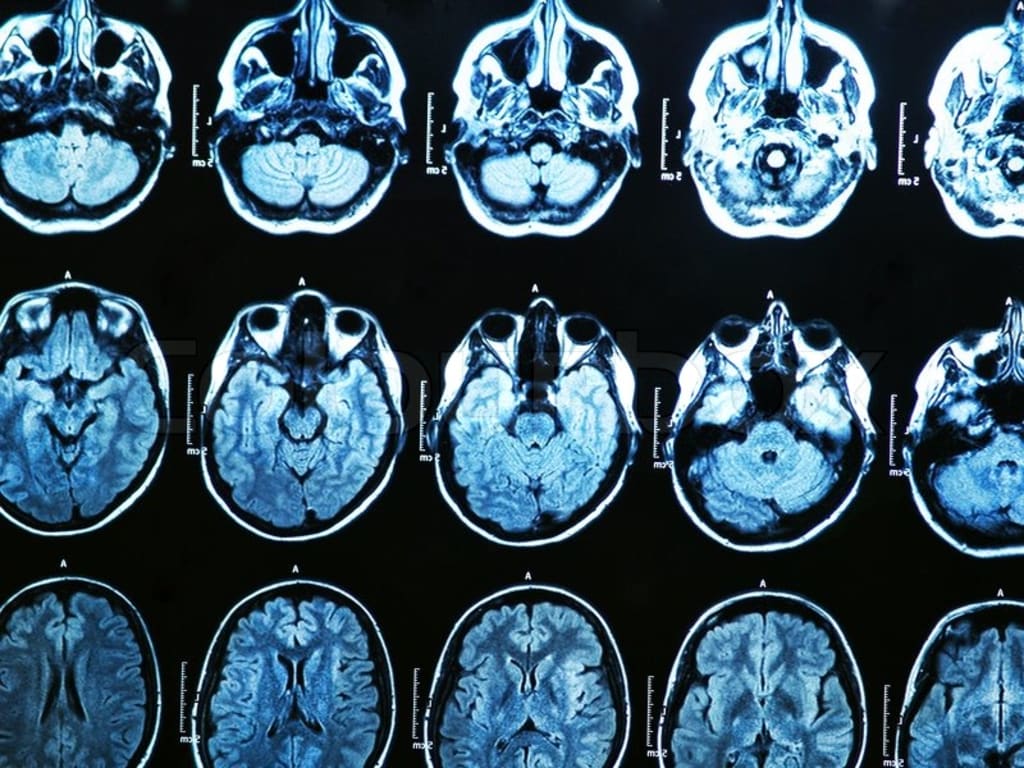Mental Illnesses: They're Not Just All in Your Head, They're in Your Head
The Physical Side of Mental Illness

All too often those who struggle with mental illness hear the words “It’s all in your head,” a phrase that implies mental illness is just a figment of our imagination that can be sent away just as quickly as it came. Those with depression may hear “Just cheer up!” Those with anxiety “Just calm down!” Those with bipolar disorder “Just grow up!” And those with ADD/ADHD “Just focus!” Phrases like this indicate it’s a common belief that those with mental illnesses have complete and total control over their disorders. Is it really so simple?
As researchers have found, it’s actually not. Emotions are produced by neurons spitting out chemicals, also called neural transmitters, into the receptors of other neurons, which are then processed and make you feel things like happy, sad, and angry. When your neurons are producing too much or too little of a certain chemical, it causes mental illnesses such as depression, OCD, schizophrenia, and bipolar disorder. This is why psychiatrists prescribe medication, it helps either inhibit or assist production of a specific set of chemicals depending on what the problem is. While your brain is much more complicated, this is just a basic idea of how it works. On a larger scale, in 2015, Dr. Amit Etkin and his team of researchers discovered through structural brain imaging that there is a structural difference in the brains of people afflicted with mental illness. Etkin found that in individuals struggling with schizophrenia, addiction, bipolar disorder, depression, obsessive-compulsive disorder, and anxiety disorders had shown loss of grey matter—the tissues in the brain containing the bodies of neurons—as opposed to their mentally healthy counterparts. The reduced amount of grey matter was found in three different areas in the brain: the dorsal anterior cingulate cortex, and the left and right insulas. Etkin and his team aren’t the only ones who’ve made significant progress on unravelling this issue, though. This year, researchers at Duke University have used magnetic resonance imaging, or MRIs, to examine communication between different areas of the brain. Their studies have shown a link to individuals whose visual cortex communicated less to the rest of the brain and their likelihood to be at greater risk for common mental illnesses.
So what does all this mean? To put it simply, mental illness is really a psychical issue, not an over-dramatization of emotions. Fortunately for those struggling with mental illness, there are plenty of treatment options, including different kinds of therapy, medication, and support networks. Individuals dealing with mental disorders play a key part in their recovery and coping, but are not at fault for their illness. So if you’re struggling with a mental illness, next time someone tells you to get over it, it’s all in your head, remind them that yes, it actually is.
Sources
“Breakdown of Brain's Visual Networks Linked to Mental Illness.” ScienceDaily, ScienceDaily, 9 May 2018, www.sciencedaily.com/releases/2018/05/180509121609.htm.
“Many Mental Disorders Affect The Same Brain Region.” LiveScience, www.livescience.com/49694-mental-illness-brain-similarities.html.
“Poor Neurotransmitter Activity Linked to Mental Illnesses.” Addiction Treatment | Elements | Drug Rehab Treatment Centers, Addiction Treatment | Elements | Drug Rehab Treatment Centers, 21 Sept. 2011, www.elementsbehavioralhealth.com/mental-health/poor-neurotransmitter-activity-linked-to-mental-illnesses/.
About the Creator
Heather Terese
Writer and psychology enthusiast






Comments
There are no comments for this story
Be the first to respond and start the conversation.